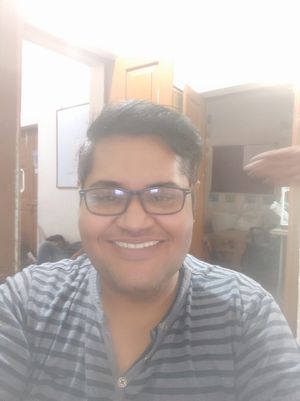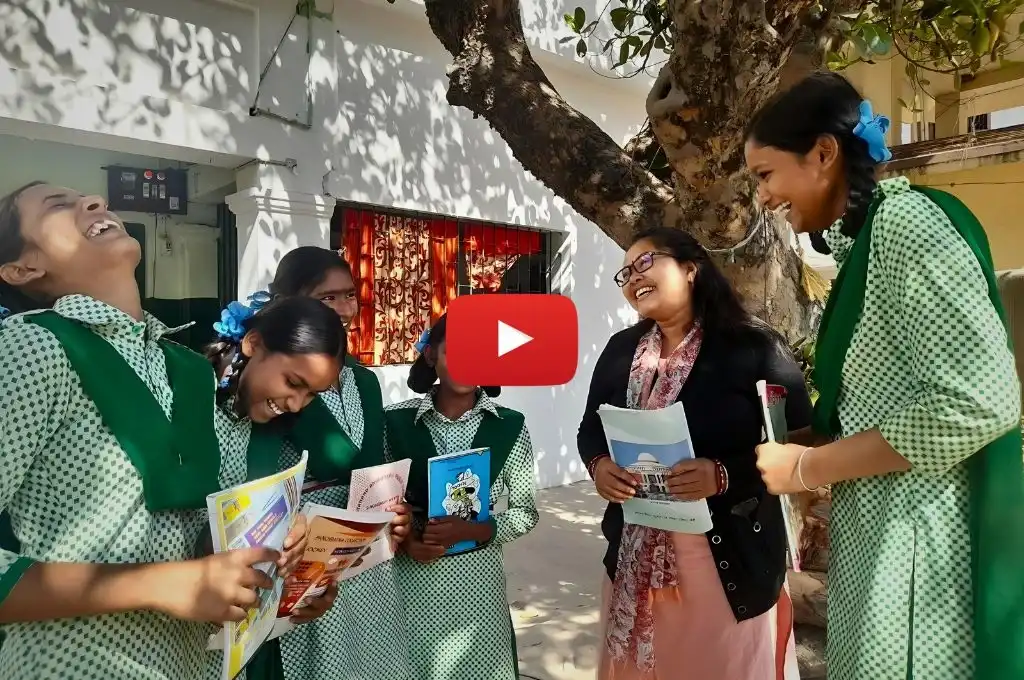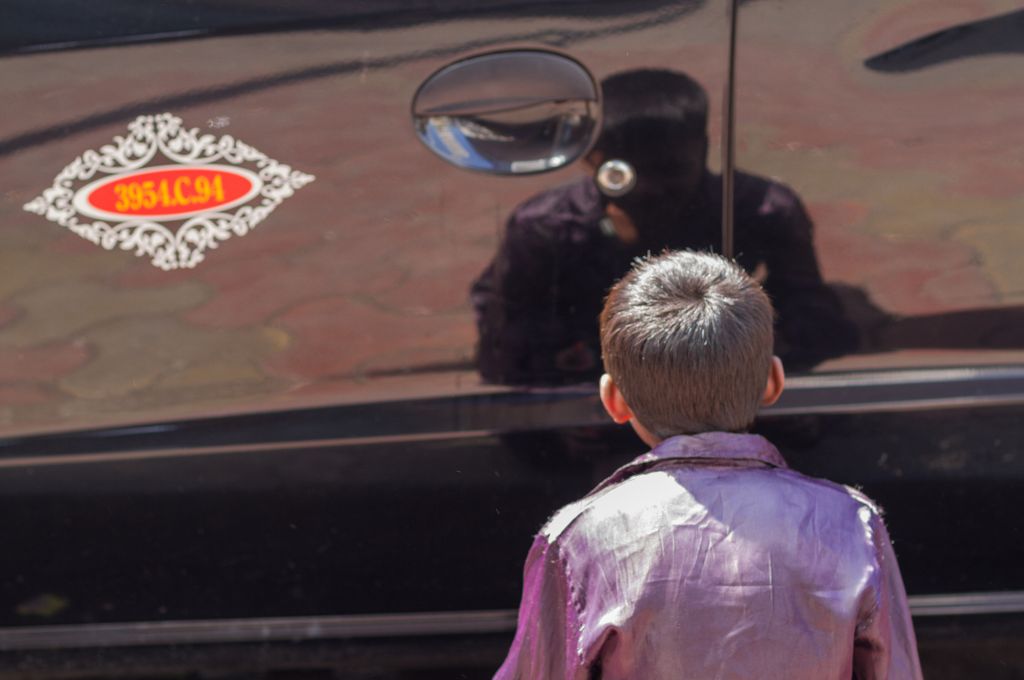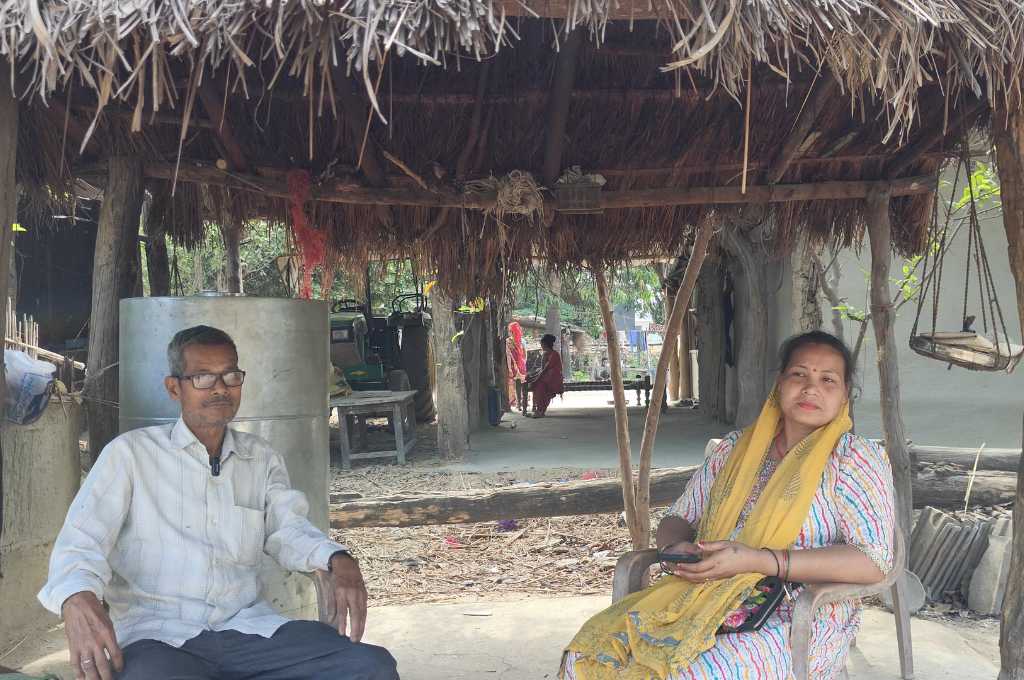I am Souvik Saha, and I work on creating safe spaces for India’s young people, especially those belonging to marginalised communities.
I grew up in a basti in Jamshedpur, Jharkhand. My father worked in a factory, and my mother stayed home to look after my sister and me. My firmly lower-middle-class upbringing somewhat limited my interactions to only my immediate circle of friends and family. However, moving away from home to pursue higher studies at Calcutta University was an eye-opening experience for me. I got the opportunity to interact with people from diverse backgrounds, many less privileged than my own. My time there also instilled in me a passion for political participation, as my hostel was a hub for student politics. As a result, I spent most of my college days attending demonstrations and street plays.
After my graduation, I started working at a bank in the city. But soon I got disillusioned by the structured 9–5 set-up and quit my cushy job. Driven by a desire to work with young people, I applied to and got selected for Changelooms—a fellowship offered by Pravah. My journey as a fellow helped me develop a more concrete idea of the kind of work I wanted to do. And so, in 2010, I founded People for Change in Jamshedpur, an organisation that aims to equip young people, especially those from marginalised communities, with critical life skills that can enable them to bring about personal and social transformation.
I believe in collectives and ecosystems, which is why I spend significant time volunteering in spaces like ComMutiny – The Youth Collective and the vartaLeap Coalition. To amplify this vision, I convened the Jharkhand Youth Collective—a collaborative of various organisations working with Jharkhand’s youth. I also founded the Jamshedpur Queer Circle, an open platform facilitating a safe, non-judgemental space for young queer people and allies in the city. As part of it, we work on the well-being of approximately 500 transgender individuals and 700 queer youth, who are often neglected or deliberately concealed in a city like Jamshedpur.
5.00 AM: I begin my day by tending to my small garden, where I grow a few vegetables and flowers. I enjoy gardening because it calms me and I like doing something creative to start the day. After this, I move to the kitchen to prepare meals for everyone. I live with my parents, and since my mother has been unwell lately, I have also taken up the responsibility of cooking for the household. Once I wrap up all the household chores, I start getting ready for work.
7.00 AM: Before heading to the office, I visit the various schools we’re working with and do a round of meetings with principals and key stakeholders to discuss our ongoing programmes. One such programme involves fostering cross-cultural friendships among young people. For instance, we once paired a Muslim boy with a young Brahmin girl. Through the interactions they shared as part of the programme, they were able to gain a deeper understanding of their personal and cultural similarities and differences, which facilitated a reconciliation of their seemingly disparate identities. However, this programme has received pushback in the past. My team was once asked by a school’s principal to stop conducting our programme in their school. This was because they had received complaints from parents who believed that the programme was an affront to their tradition and culture.
I realised that in order to empower our youth, we need to integrate gatekeepers into the interventions we design.
Such resistance from gatekeepers has been a major challenge in our line of work. We have received threats from parents and letters from authorities to get us to stop. However, such challenges have only helped my team and me to devise better approaches to our work. After many conversations with parents and teachers over the years, I realised that in order to empower our youth, we need to integrate them and other such gatekeepers into the interventions we design. Therefore, all our youth programmes now include actively creating open dialogue with stakeholders and working in collaboration with them.
9.00 AM: After my early morning meetings, I head to the office for the team meeting where we discuss the status of all our ongoing projects. The main focus of today’s meeting is to strategise and prepare the curriculum for one of our upcoming fellowships, which seeks to develop young community leaders in the education space who will ensure that quality education is available to children all across Jharkhand. To do this, the programme manager, interns, and I sit together and have in-depth discussions about each topic that will be included in the fellowship’s curriculum.
11.00 AM: I head out to Jadugoda, a small town in Jharkhand, to visit the community centre we have established there and check in on the young team that manages it. The team has organised a meeting with 100 girls and women of the town to discuss some of their ongoing concerns. The largest uranium deposits in India are located in this small town where the incidence of cancer is quite high as a result of the improper disposal of radioactive waste. We started working with the young girls in Jadugoda with the aim of creating more livelihood opportunities for them. A part of our work with them involves educating them about their constitutional rights and training them as volunteers, which enables them to serve their community better. The community themselves provide us with spaces—ranging from middle schools to Anganwadi centres—where classes can be held.
As Jadugoda is relatively far away from the office, I decide to forego public transport and travel on my motorcycle instead. I look forward to my time in the field as these meetings help my team and me identify the concerns of the community and strive to support the youth to address those needs.
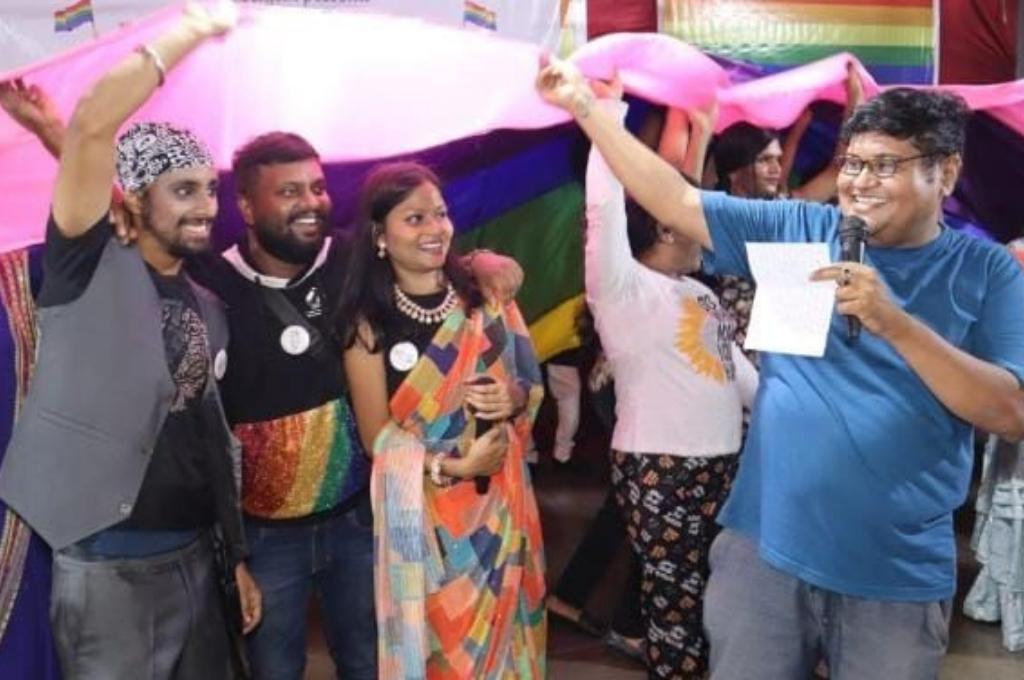
4:00 PM: When I return to the office, I find it brimming with people. This is a common sight as many young people drop by to talk to our counsellors and discuss some of their problems with members of the team in the evening.
When I was young, I never felt like my inquisitiveness and curiosity was fostered. At school, where I expected to receive answers to my questions, I was only ever labelled as ‘talkative’ or ‘disruptive’. Therefore, I always envisioned the People for Change headquarters as a space that allows for a lot of self-inquiry and questioning. Young people are always welcome to hang around, study, and have conversations with the team. By offering a safe space for queer and other marginalised youth, I too am able to delve deeper into the issues that are most important to them. It has also made me realise that these issues differ based on the communities they belong to. For example, the most pressing issues for queer youth concern health, livelihoods, and relationships. However, land, forest, and water rights were of greater importance to Adivasi youth. Thus, every young person we have engaged with has in some way informed the work that we do by helping us view them through a multidimensional lens and consequently refine how we aid them.
6:00 PM: I unwind in the office once most of the work for the day is complete. I designed the office to serve as a space where employees can also relax. For instance, we regularly organise open-mic and game nights. We also installed a few beds, where I decide to take a short nap before the team gets together to briefly discuss the agenda for the following day, after which we will call it a night.
8:00 PM: When I reach home, I quickly grab dinner and sit with my mom for a while. I usually do not do much after a busy day at work. Sometimes I invite my friends over for dinner, or I go out to watch a movie. However, most days of the week, I spend some quiet time at home with my mom or by myself.
10:00 PM: I get ready for bed and settle in with the book I’m currently reading. These last couple of hours after work also give me the space to contemplate the organisation’s long-term goals and the future I hope to help build. My immediate hope is to facilitate the creation of spaces where young people and their curiosities are adequately nurtured. Whether it’s an educational, corporate, or family environment, I want young people’s voices to be heard with respect to the decisions that affect them. Ultimately, it is my dream to see a world, led by the youth, that is more just and filled with love.
As told to IDR.
—
Know more
- Read this article to understand the impact of the pandemic on the mental health of sexual minorities.
- Read this article about a trans rights activist working to fight prejudice against the trans, hijra, and intersex communities.
